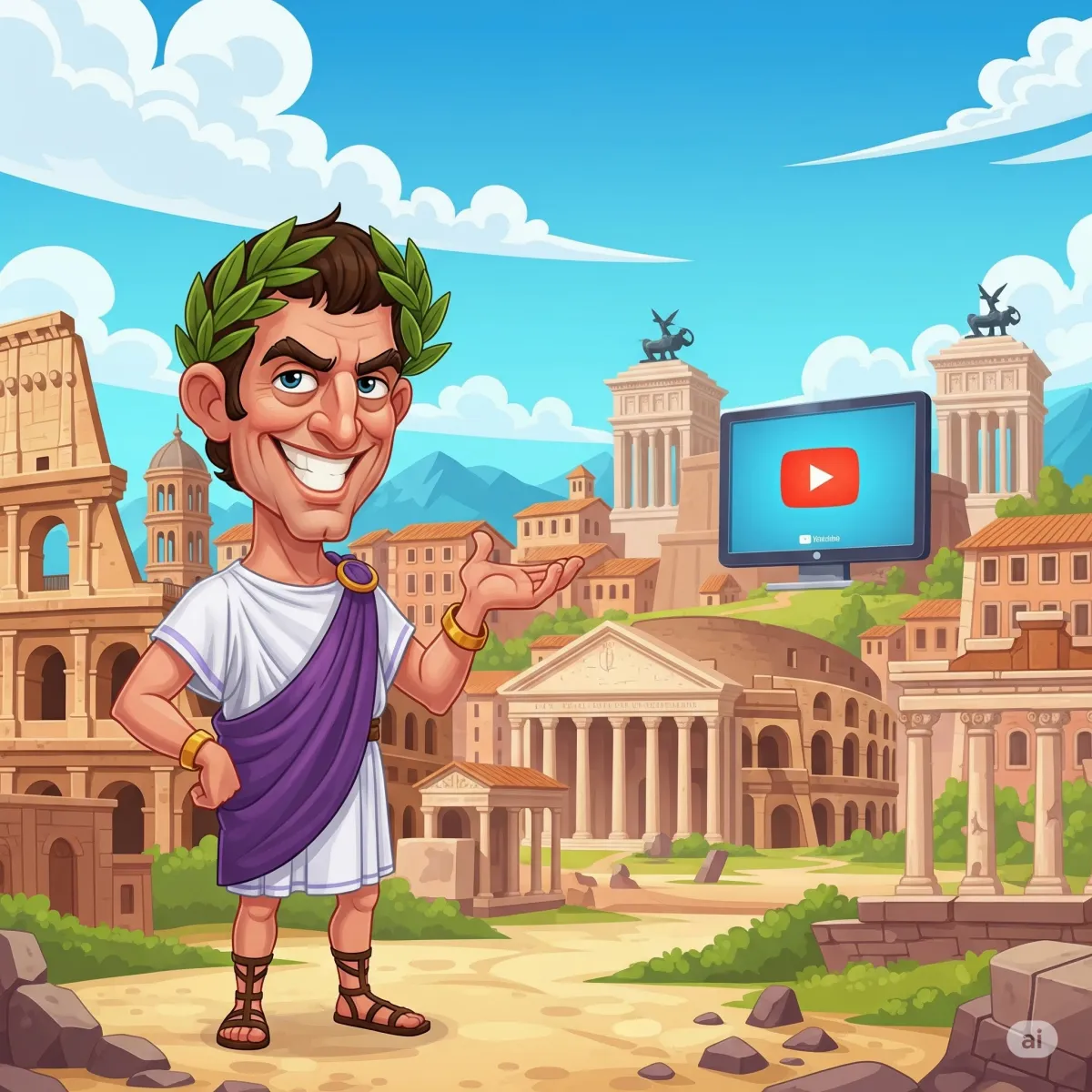Caligula: The Original Clickbait King of Rome
Caligula's bizarre antics read like ancient clickbait—wild, baffling, and oddly instructive about why spectacle wins attention.

Intro: A Baffling Emperor Who Loved the Spotlight
It's almost impossible not to stare when history hands you a ruler who seems to binge-post scandal like it's a passion project. *Caligula*, the third Roman emperor, reads like a mashup of tabloid headlines and a bizarre reality show. How on earth did a man from ancient Rome manage to produce antics that would make modern social media blush? 😳
The stories are equal parts ridiculous and strangely magnetic — empires, horses treated like senators, extravagant banquets, threats, and public spectacles that flip from comic to chilling in the same breath. This post is a baffled, amused, and curious look at *why* Caligula's antics worked as the ancient world's ultimate clickbait. 🧐
The Spectacle: Stunts, Scandals, and theatrics
Caligula's life reads like someone trying very hard to be noticed. He allegedly made his horse a priest (or senator, depending on the teller), staged lavish games, and delighted in unpredictable cruelty. Each episode of his rule seemed designed to spark gossip — *and it did*. The ancient equivalent of a viral thumbnail? That'd be Caligula walking into the senate wearing an embroidered robe and a crown, then laughing when the room went silent. 😂
Shock value was his tool: he knew how to push boundaries so people would talk. Whether the sources exaggerated or not, the narratives stuck. In a time when message spread by word of mouth (and later by chroniclers), a shocking anecdote was gold: it traveled fast, it provoked strong reaction, and it shaped reputations.
Why It Worked: Psychology Before Psychology
Let's be blunt: human beings are wired to pay attention to the unusual. Caligula's strange choices tapped into the same impulses that make us click a sensational headline today. Surprise activates our attention, outrage binds groups together, and curiosity compels us to seek the whole story. In short, he used *emotional triggers* long before marketing teams mapped them out. 😅
Moreover, authority + unpredictability = unforgettable. An emperor behaving erratically forces people to form stories that make sense of the chaos. Romans loved drama as much as we do — only they had amphitheaters and triumphal processions instead of trending tabs. By being outrageous, Caligula occupied the only space that mattered: everyone's conversations.
Myth vs. Reality: Sorting Sensation from Source
Of course, historians roll their eyes at many of the lurid tales. Ancient writers like Suetonius and Cassius Dio wrote with agendas and tastes for the salacious. That doesn’t mean every story is false, but it does mean we should tilt our heads and ask: what helped this story survive? Often it was the shock itself. If a story is weird enough to be retold, it will be retold — sometimes becoming more extreme each time. 🤯
So which parts are real? Hard to say. Some events likely happened; others grew into legend. But whether every prank or murder was authentic matters less than the fact that Caligula became a powerful symbol: the emperor who embodied excess, unpredictability, and the dangerous lure of spectacle.
Modern Lessons: Clickbait, Ethics, and the Cost of Attention
What does an ancient emperor teach our era of viral headlines? Quite a lot. First: attention can be weaponized. Caligula used spectacle to reinforce power and steer public perception. Today, attention can make careers, topple reputations, or even destabilize discourse. The technique is similar; the platform is different. 📱
Second: shock is a cheap currency. It works fast but corrodes trust. Caligula’s legacy is less about administrative reforms and more about how antics overshadowed governance. Modern creators and leaders should remember that short-term buzz often costs long-term credibility.
Conclusion: Still Baffled, Still Fascinated
There's something deliciously uncanny about an emperor from two millennia ago who seems to have anticipated our age of sensational headlines. Caligula is baffling because he blends the absurd and the dangerous in ways that feel eerily modern. Whether the stories are truth or tall tale, they remind us how potent spectacle has always been — and how easily the desire to be noticed can tip into chaos. 😵💫
So next time you pause at a scandalous headline, remember: Rome had its own clickbait master. And like any good scandal, it keeps us talking centuries later.



